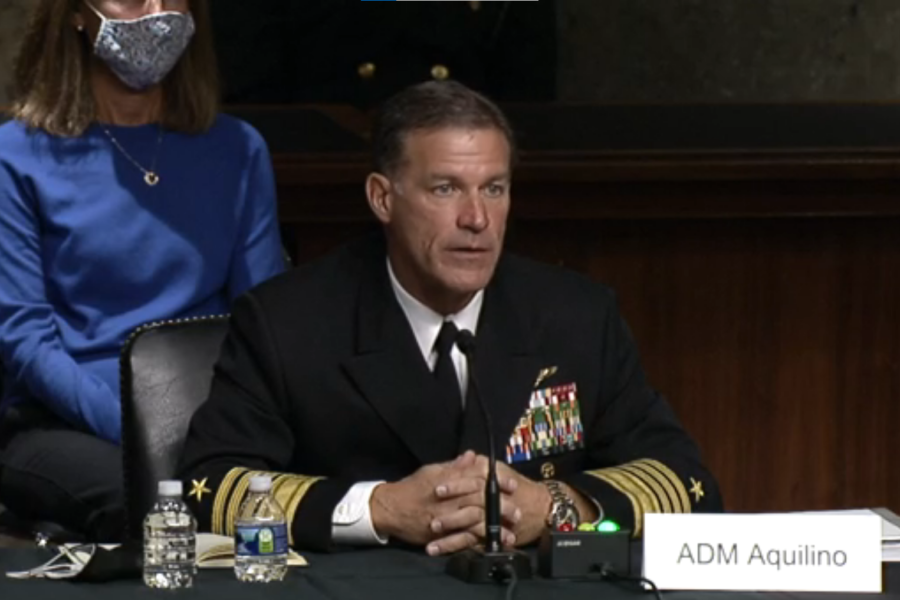The Indo-Pacific region needs a large influx of spending to bolster missile defense, both at the strategic location of Guam and at other locations across the vast area of operations, the nominee to lead the region’s combatant command argued March 23.
Adm. John C. Aquilino, the commander of the Navy’s Pacific Fleet who has been tapped to lead U.S. Indo-Pacific Command, told lawmakers the command’s recently disclosed $4.7 billion Pacific Deterrence Initiative request for the next fiscal year is the “poster child” of top capabilities needed in the military’s priority theater. If confirmed, Aquilino would replace Adm. Philip S. Davidson, who has led the command since May 2018.
“The missile defense concern is throughout the theater,” Aquilino said.
Davidson recently told lawmakers that the PDI request includes building an Aegis Ashore missile defense system for Guam, along with ground-based precision strike capabilities and over-the-horizon radars.
The defense of Guam is the command’s top unfunded priority, and Aquilino said because there are 170,000 U.S. citizens and 20,000 service members on the island, “force protection is absolutely required.”
The Aegis Ashore system, which Aquilino said would provide dependable 360-degree protection, is expensive and has faced problems in other areas. For example, the Japanese government in June 2020 canceled its planned construction of two of the systems. A system in Romania is operational and another is underway in Poland. Aquilino said he hopes there are lessons learned from those projects to find cost savings and ways to keep it on schedule, adding it is possible a Guam defense system could be in place by 2025.
For now, that system seems to be the best approach, Aquilino said. “If there’s a better answer that can deliver in the near term, I’ll be ready to listen to that, if confirmed, but that’s how I see it,” he added.
Aquilino also said it’s important the U.S. develop both offensive and defensive hypersonic systems to be able to counter the “capabilities that our competitors are pursuing.”
The bulk of Aquilino’s confirmation hearing focused on threats from China, who Aquilino said has a “goal to supplant U.S. leadership in the region” from the South China Sea to the border with India with the vision “ultimately to change those rules to the benefit of the PRC. Ultimately, it would change the view of the region from those who believe in a free and open Indo-Pacific to those who might want a more authoritarian … Indo-Pacific.”
While China’s public comments run counter to an expansionist view, it’s important to “look at the deeds,” he said. “The islands in the South China Sea are probably the best examples. All of those islands have been militarized. … It is in exact opposition to what has been said.”
Air Force Magazine digs deeper into air base defense overseas in its April cover story, “Defending Forward Bases,” which will be available soon.
